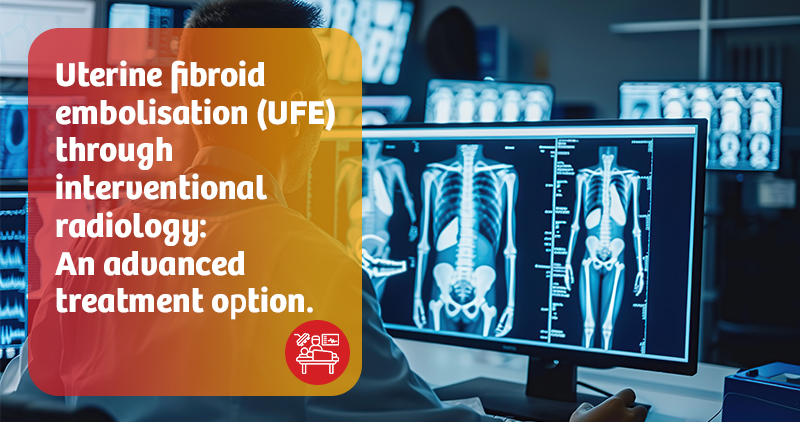

By Dr Aakash Patel
Consultant Vascular and Interventional Radiologist
May 20, 2025
Uterine fibroids, medically known as leiomyomas, are benign (non-cancerous) growths that develop from the smooth muscle tissue of the uterus. These growths are incredibly common, affecting women by the time they reach their reproductive age. Although many women with fibroids experience no symptoms at all, for some, fibroids can cause a range of significant and distressing problems.
These symptoms often include heavy and prolonged menstrual bleeding, which can lead to anaemia; pelvic pain or a persistent feeling of pressure in the lower abdomen; frequent urination or constipation caused by pressure on the bladder or bowel; and, in some cases, difficulties with fertility or complications during pregnancy.
It is due to vocal cord nodules/lesions. Let us understand this condition in detail. Vocal cord lesions are non-cancerous (benign) growths or abnormalities that develop on the vocal cords, often due to vocal strain, misuse, or other irritants.
For decades, the primary treatment for symptomatic uterine fibroids has been surgical. The most definitive solution, hysterectomy (removal of the entire uterus), effectively eliminates fibroids but also permanently ends a woman's ability to bear children. Myomectomy, which involves the surgical removal of fibroids while preserving the uterus, is another option that requires open or laparoscopic surgery and comes with risks such as bleeding, infection, and long recovery times.
In recent years, interventional radiology has revolutionised the management of uterine fibroids by offering a minimally invasive alternative called uterine fibroid embolisation (UFE). This innovative procedure involves the targeted blockage of blood vessels supplying the fibroids, effectively cutting off their blood flow and causing them to shrink and die.
Performed through a small puncture in the groin or wrist under local anaesthesia, UFE avoids the need for major surgery and typically allows for a quicker recovery with less pain. As a uterus-preserving treatment, UFE provides women with an important option to relieve symptoms while maintaining their reproductive potential, making it a valuable choice for many patients seeking effective and less invasive fibroid management.
At KD Hospital, we have cutting-edge treatment led by experienced interventional radiologist and supported by state-of-the-art infrastructure. Read on to learn about UFE and why KD Hospital is the preferred destination for this modern procedure.
Fibroids are benign tumours made of smooth muscle and connective tissue. Depending on their location, they are:
Uterine fibroid embolisation is a minimally invasive, image-guided procedure by interventional radiologists to shrink fibroids by blocking their blood supply.
The procedure usually takes 1 to 2 hours and does not require general anaesthesia.
UFE is suitable for women who:
UFE may not be suitable for:
What to expect post-uterine fibroid embolisation:
| Treatment | Invasiveness | Uterus Preservation | Recovery Time | Suitability |
|---|---|---|---|---|
| Hysterectomy | Highly invasive | No | 4–6 weeks | Women done with childbearing |
| Myomectomy | Moderately invasive | Yes | 2–4 weeks | Fertility preservation |
| UFE | Minimally invasive | Yes | 5–10 days | Women seeking non-surgical relief |
KD Hospital stands out as a centre of excellence for uterine fibroid embolisation, owing to the following key strengths:
It ensures holistic treatment and comprehensive pre-and post-procedure care.
When I first met the doctor, I was advised to undergo a hysterectomy, which frightened me. A friend recommended that I consult at KD Hospital, where I learned about uterine fibroid embolisation (UFE). I underwent the procedure and am so glad I came here—I was able to save my uterus.
— A 42-year woman from Ahmedabad
My fibroid symptoms had become unbearable, but I wanted to avoid surgery. The interventional radiology team at KD Hospital explained everything clearly and patiently. The procedure was painless, and I was back at work within a week!
— A 36-year woman from Vadodara
KD Hospital: Comprehensive treatment under one roof.
Uterine fibroid embolisation is transforming the treatment of fibroid symptoms—offering relief without surgery, scarring, or prolonged downtime. For women who value uterus preservation and a quick recovery, uterine fibroid embolisation is an empowering option.
At KD Hospital, we combine modern technology, medical expertise, and compassionate care to ensure the best outcomes for women facing fibroid-related challenges.
If you're experiencing symptoms or have been diagnosed with fibroids, schedule a consultation with our interventional radiology or gynaecology teams. We'll help you explore UFE and other personalised treatment options suited to your lifestyle and health goals.